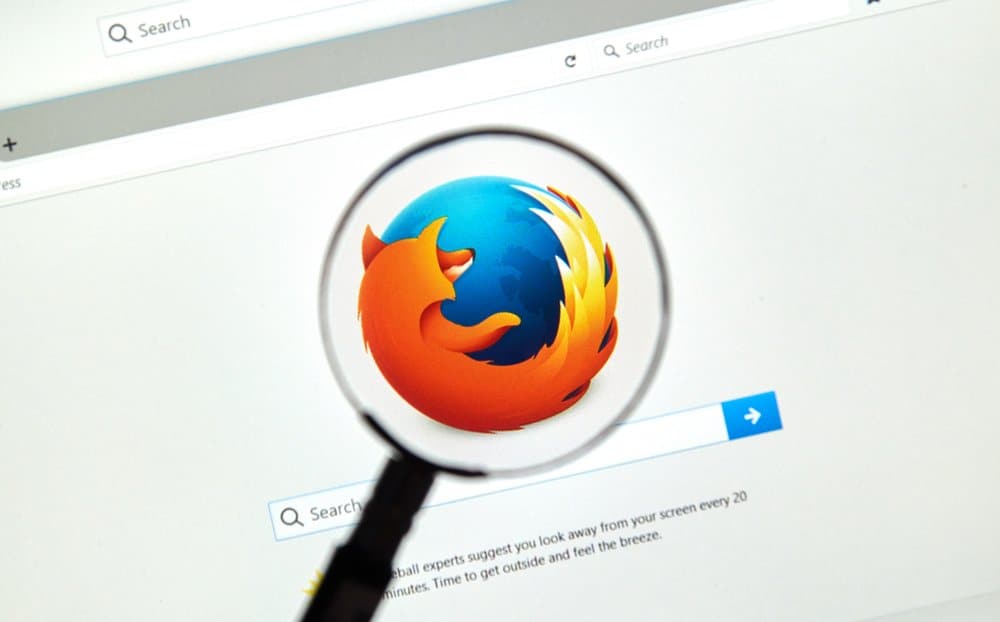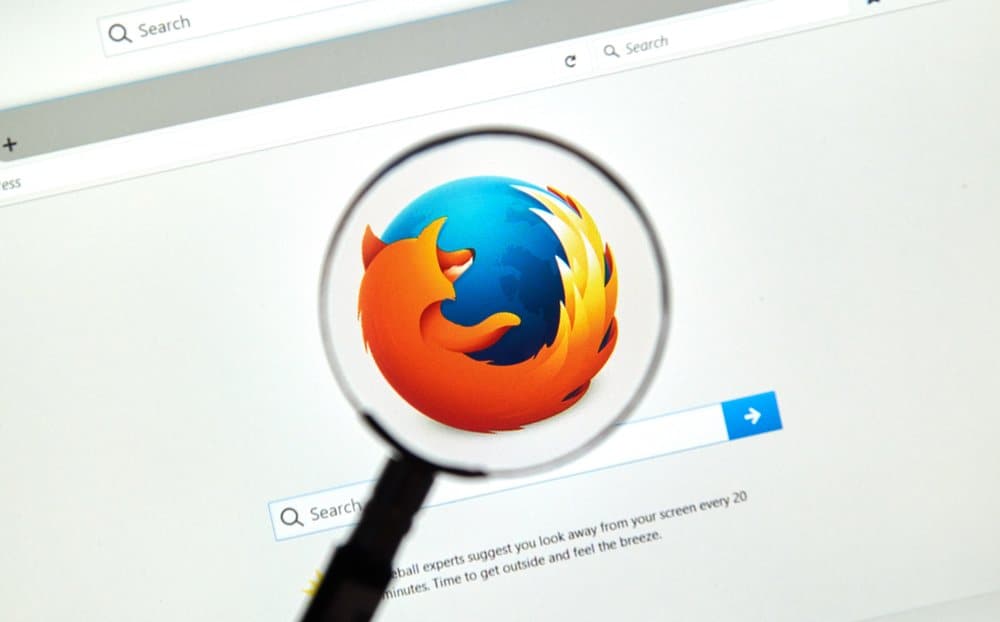Imagine your search terms, key-strokes, private chats and photographs are being monitored every time they are sent. Millions of students across the country don’t have to imagine this deep surveillance of their most private communications: it’s a reality that comes with their school districts’...

Imagine your search terms, key-strokes, private chats and photographs are being monitored every time they are sent. Millions of students across the country don’t have to imagine this deep surveillance of their most private communications: it’s a reality that comes with their school districts’...

Discord is lowering the upload limit for free users from 25MB to 10MB, citing operational and financial reasons.

>Discord isn’t exactly known for generous file-sharing limits, still, the messaging app offered a 25MB limit to free users. The company has now updated its support page to reflect the upload limit for free users has been lowered to 10MB.
Mayor said data was unusable to criminals; researcher proved otherwise.

>A judge in Ohio has issued a temporary restraining order against a security researcher who presented evidence that a recent ransomware attack on the city of Columbus scooped up reams of sensitive personal information, contradicting claims made by city officials.
>The order, issued by a judge in Ohio's Franklin County, came after the city of Columbus fell victim to a ransomware attack on July 18 that siphoned 6.5 terabytes of the city’s data. A ransomware group known as Rhysida took credit for the attack and offered to auction off the data with a starting bid of about $1.7 million in bitcoin. On August 8, after the auction failed to find a bidder, Rhysida released what it said was about 45 percent of the stolen data on the group’s dark web site, which is accessible to anyone with a TOR browser.
>Columbus Mayor Andrew Ginther said on August 13 that a “breakthrough” in the city’s forensic investigation of the breach found that the sensitive files Rhysida obtained were either encrypted or corrupted, making them “unusable” to the thieves. Ginther went on to say the data’s lack of integrity was likely the reason the ransomware group had been unable to auction off the data.
>Shortly after Ginther made his remarks, security researcher David Leroy Ross contacted local news outlets and presented evidence that showed the data Rhysida published was fully intact and contained highly sensitive information regarding city employees and residents. Ross, who uses the alias Connor Goodwolf, presented screenshots and other data that showed the files Rhysida had posted included names from domestic violence cases and Social Security numbers for police officers and crime victims. Some of the data spanned years.
>On Thursday, the city of Columbus sued Ross for alleged damages for criminal acts, invasion of privacy, negligence, and civil conversion. The lawsuit claimed that downloading documents from a dark web site run by ransomware attackers amounted to him “interacting” with them and required special expertise and tools.
Mozilla will soon remove its telemetry service Adjust from the Android and iOS versions of browsers Firefox and Firefox Focus. It appeared that the

For Android users seeking a privacy-focused browser, Privacy Guides recommends Mull: >Mull is a privacy oriented and deblobbed Android browser based on Firefox. Compared to Firefox, it offers much greater fingerprinting protection out of the box, and disables JavaScript Just-in-Time (JIT) compilation for enhanced security. It also removes all proprietary elements from Firefox, such as replacing Google Play Services references.
>Mull enables many features upstreamed by the Tor uplift project using preferences from Arkenfox. Proprietary blobs are removed from Mozilla's code using the scripts developed for Fennec F-Droid.
Mozilla will soon remove its telemetry service Adjust from the Android and iOS versions of browsers Firefox and Firefox Focus. It appeared that the

For Android users seeking a privacy-focused browser, Privacy Guides recommends Mull: >Mull is a privacy oriented and deblobbed Android browser based on Firefox. Compared to Firefox, it offers much greater fingerprinting protection out of the box, and disables JavaScript Just-in-Time (JIT) compilation for enhanced security. It also removes all proprietary elements from Firefox, such as replacing Google Play Services references.
>Mull enables many features upstreamed by the Tor uplift project using preferences from Arkenfox. Proprietary blobs are removed from Mozilla's code using the scripts developed for Fennec F-Droid.
Mozilla will soon remove its telemetry service Adjust from the Android and iOS versions of browsers Firefox and Firefox Focus. It appeared that the

For Android users seeking a privacy-focused browser, Privacy Guides recommends Mull: >Mull is a privacy oriented and deblobbed Android browser based on Firefox. Compared to Firefox, it offers much greater fingerprinting protection out of the box, and disables JavaScript Just-in-Time (JIT) compilation for enhanced security. It also removes all proprietary elements from Firefox, such as replacing Google Play Services references.
>Mull enables many features upstreamed by the Tor uplift project using preferences from Arkenfox. Proprietary blobs are removed from Mozilla's code using the scripts developed for Fennec F-Droid.
The super privacy-focused third-party ROM, GrapheneOS now officially supports the Google Pixel 9, 9 Pro, and 9 Pro XL.

The super privacy-focused third-party ROM, GrapheneOS now officially supports the Google Pixel 9, 9 Pro, and 9 Pro XL.

The super privacy-focused third-party ROM, GrapheneOS now officially supports the Google Pixel 9, 9 Pro, and 9 Pro XL.

The super privacy-focused third-party ROM, GrapheneOS now officially supports the Google Pixel 9, 9 Pro, and 9 Pro XL.

X is discouraging users from viewing a link to an NPR story about Donald Trump, labeling it as "unsafe."

X briefly discouraged users from viewing a link to an NPR story about Donald Trump's recent visit to Arlington National Cemetery, raising questions about whether the Elon Musk-owned platform is putting its thumb on the scale for the former president.
On Thursday, NPR reporter Stephen Fowler posted a link to a story in which he quoted an Army official who said that an employee at Arlington National Cemetery was “abruptly pushed aside” during an event attended by Trump and members of his campaign earlier this week. The outlet had previously reported that there was a “physical altercation” at the event with campaign staff over federal laws barring campaign activities at the cemetery.
Some users on X who attempted to click a link to the story were greeted with a warning message saying that X deemed that “this link may be unsafe.” It stated that it could be malicious, violent, spammy or otherwise violate the platform’s rules, but didn't explain why the link was flagged. Fowler posted a thread on X, each tweet of which contained a link to his story — the warning appeared to affect the first two instances of the link but not others, for reasons unknown. It’s highly unusual for such a warning to appear before a link to a mainstream website. Other links to NPR, as well as other coverage of Trump’s visit to Arlington, don’t appear to have such a label.
In a statement to an NPR reporter, an X spokesperson claimed the warning appeared due to a "false positive" and that it had been corrected. The company didn't explain further.
Notably, Musk has been a vocal supporter of Trump this election, and recently held a lengthy live streamed conversation with him on X. Musk has also publicly feuded with NPR in the past, adding a “state affiliated media” label to its account for several months last year. NPR hasn’t posted from its main account on X since the label was added last April.
Updated Aug. 28, 2024. Take back your privacy Firefox is rolling out Total Cookie Protection by default to more Firefox users worldwide, making Firefox the

Updated Aug. 28, 2024. Take back your privacy Firefox is rolling out Total Cookie Protection by default to more Firefox users worldwide, making Firefox the

The Settings app has taken over, but Control Panels aren't going anywhere yet.

>Last week, Microsoft mentioned in a support document that it was formally deprecating Windows' 39-year-old Control Panel applets. But following widespread reporting of the change, Microsoft has either backtracked or clarified its language to remove the note about Control Panel being deprecated in favor of the Settings app. Here's what the original post said, as also preserved by the Internet Wayback Machine (emphasis ours): > >"The Control Panel is a feature that's been part of Windows for a long time. It provides a centralized location to view and manipulate system settings and controls," the support page explains. "Through a series of applets, you can adjust various options ranging from system time and date to hardware settings, network configurations, and more. The Control Panel is in the process of being deprecated in favor of the Settings app, which offers a more modern and streamlined experience." > >The current version of the page has changed that last sentence considerably. It now says that "many of the settings in Control Panel are in the process of being migrated to the Settings app, which offers a more modern and streamlined experience." > >It's not clear whether this reflects a policy change or just a clarification of language. We've asked Microsoft whether it has changed plans to deprecate the Control Pane or if the original version of the support page was just incorrect in the first place, and we'll update if we receive a response.
Peloton will now charge a $95 ‘used equipment activation fee’ to basically ruin the secondhand market. It doesn’t apply to refurbished models bought directly from the company.

>Peloton is in something of a financial rut lately, and we all know what companies do when that happens. They take it out on consumers. To that end, the exercise machine maker just announced it will be charging a $95 “used equipment activation fee” to anyone who buys one of its machines on the secondhand market, according to a report by CNBC.
>The company made this announcement in its Q4 2024 shareholder letter. The fairly exorbitant fee will apply to any machine bought directly from a previous owner, meaning anything purchased via Craigslist, Facebook Marketplace or, heck, even a neighbor down the street. Without tithing $95 to the church of Peloton, the machine won’t have access to any of the classes or features the company has become known for.
>The company says this activation fee is just to ensure that new members “receive the same high-quality onboarding experience Peloton is known for.” In a recent earnings call, however, a company representative was more transparent, calling the fee a “source of incremental revenue and gross profit,” according to The Verge.
>The standard Bike, for instance, sells new for nearly $1,500, but you can pick up a used one online for $300 to $500. Now, that price goes up to $400 to $600. Peloton also requires a monthly membership fee to access content, which is around $44.
Initial Recall preview was lambasted for obvious privacy and security failures.

>Microsoft will begin sending a revised version of its controversial Recall feature to Windows Insider PCs beginning in October, according to an update published today to the company's original blog post about the Recall controversy. The company didn't elaborate further on specific changes it's making to Recall beyond what it already announced in June.
>For those unfamiliar, Recall is a Windows service that runs in the background on compatible PCs, continuously taking screenshots of user activity, scanning those screenshots with optical character recognition (OCR), and saving the OCR text and the screenshots to a giant searchable database on your PC. The goal, according to Microsoft, is to help users retrace their steps and dig up information about things they had used their PCs to find or do in the past.
>The problem was that other users on the same PC, or attackers with physical or remote access to your PC, could easily access, view, and export those screenshots and the OCR database since none of the information was encrypted at rest or protected in any substantive way.
>Among the changes Microsoft has said it will make: The database will be encrypted at rest and will require authentication (and periodic reauthentication) with Windows Hello before users will be allowed to access it. The feature will also be off by default, whereas the original plan was to turn it on by default and make users go into Settings to turn it off.
United States District Judge Amit Mehta found Google guilty of building a monopolistic position in web search. The Mountain View corporation spent billions of dollars becoming the...

>Mozilla has a close relationship with Google, as most of Firefox's revenue comes from the agreement keeping Google as the browser's default search engine. However, the search giant is now officially a monopoly, and a future court decision could have an unprecedented impact on Mozilla's ability to keep things "business as usual."
>United States District Judge Amit Mehta found Google guilty of building a monopolistic position in web search. The Mountain View corporation spent billions of dollars becoming the leading search provider for computing platforms and web browsers on PC and mobile devices.
>Most of the $21 billion spent went to Apple in exchange for setting Google as the default search engine on iPhone, iPad, and Mac systems. The judge will now need to decide on a penalty for the company's actions, including the potential of forcing Google to stop payments to its search "partners completely," which could have dire consequences for smaller companies like Mozilla.
>Its most recent financials show Mozilla gets $510 million out of its $593 million in total revenue from its Google partnership. This precarious financial position is a side effect of its deal with Alphabet, which made Google the search engine default for newer Firefox installations.
>The open-source web browser has experienced a steady market share decline over the past few years. Meanwhile, Mozilla management was paid millions to develop a new "vision" of a theoretical future with AI chatbots. Mozilla Corporation, the wholly owned subsidiary of Mozilla Foundation managing Firefox development, could find itself in a severe struggle for revenue if Google's money suddenly dried up.
United States District Judge Amit Mehta found Google guilty of building a monopolistic position in web search. The Mountain View corporation spent billions of dollars becoming the...

>Mozilla has a close relationship with Google, as most of Firefox's revenue comes from the agreement keeping Google as the browser's default search engine. However, the search giant is now officially a monopoly, and a future court decision could have an unprecedented impact on Mozilla's ability to keep things "business as usual."
>United States District Judge Amit Mehta found Google guilty of building a monopolistic position in web search. The Mountain View corporation spent billions of dollars becoming the leading search provider for computing platforms and web browsers on PC and mobile devices.
>Most of the $21 billion spent went to Apple in exchange for setting Google as the default search engine on iPhone, iPad, and Mac systems. The judge will now need to decide on a penalty for the company's actions, including the potential of forcing Google to stop payments to its search "partners completely," which could have dire consequences for smaller companies like Mozilla.
>Its most recent financials show Mozilla gets $510 million out of its $593 million in total revenue from its Google partnership. This precarious financial position is a side effect of its deal with Alphabet, which made Google the search engine default for newer Firefox installations.
>The open-source web browser has experienced a steady market share decline over the past few years. Meanwhile, Mozilla management was paid millions to develop a new "vision" of a theoretical future with AI chatbots. Mozilla Corporation, the wholly owned subsidiary of Mozilla Foundation managing Firefox development, could find itself in a severe struggle for revenue if Google's money suddenly dried up.
Reddit CEO Steve Huffman has hinted that in future some subreddits could be paywalled, as the company seeks to devise...

>Reddit CEO Steve Huffman has hinted that in future some subreddits could be paywalled, as the company seeks to devise new sources of income.
>He suggested that the company might experiment with paywalled subreddits as it looks to monetize new features. “I think the existing, altruistic, free version of Reddit will continue to exist and grow and thrive just the way it has,” Huffman said. “But now we will unlock the door for new use cases, new types of subreddits that can be built that may have exclusive content or private areas, things of that nature.”
>This is another move likely to anger Redditors. While the platform is a commercial enterprise, its value derives almost entirely from freely offered user content. That means Redditors feel at least some sense of ownership in a community endeavour, so the company needs to tread carefully when it comes to monetization at user expense.
Summary:
- AI's rapid growth has transformed digital life, but its significant environmental impact remains largely unchecked.
- AI-powered features can consume up to 10 times more electricity than traditional searches, potentially equating to a country's power usage.
- The proliferation of energy-intensive data centers powering AI is outpacing the electric grid's capacity, forcing utilities to maintain fossil fuel plants for reliability.
- Estimates suggest AI could account for 9% of U.S. energy demand by 2030, substantially contributing to climate change.
- Lack of industry transparency and mandatory reporting makes quantifying AI's full environmental toll difficult.
- Tech companies negotiate discounted utility rates, shifting costs to ratepayers and reducing incentives for energy efficiency.
- Government regulation has been slow and industry-influenced, focusing on hypothetical future risks over current, tangible harms.
- The burden of AI's environmental impact disproportionately falls on Global South communities where data centers are located.
- Tech companies resist mandatory disclosures, prioritizing profits over sustainability while the public bears the physical costs.
Summary:
- Signal's desktop app stores encryption keys for chat history in plaintext, making them accessible to any process on the system
- Researchers were able to clone a user's entire Signal session by copying the local storage directory, allowing them to access the chat history on a separate device
- This issue was previously highlighted in 2018, but Signal has not addressed it, stating that at-rest encryption is not something the desktop app currently provides
- Some argue this is not a major issue for the "average user", as other apps also have similar security shortcomings, and users concerned about security should take more extreme measures
- However, others believe this is a significant security flaw that undermines Signal's core promise of end-to-end encryption
- A pull request was made in April 2023 to implement Electron's safeStorage API to address this problem, but there has been no follow-up from Signal
Summary:
- Signal's desktop app stores encryption keys for chat history in plaintext, making them accessible to any process on the system
- Researchers were able to clone a user's entire Signal session by copying the local storage directory, allowing them to access the chat history on a separate device
- This issue was previously highlighted in 2018, but Signal has not addressed it, stating that at-rest encryption is not something the desktop app currently provides
- Some argue this is not a major issue for the "average user", as other apps also have similar security shortcomings, and users concerned about security should take more extreme measures
- However, others believe this is a significant security flaw that undermines Signal's core promise of end-to-end encryption
- A pull request was made in April 2023 to implement Electron's safeStorage API to address this problem, but there has been no follow-up from Signal
Summary:
- Netflix is discontinuing its cheapest ad-free subscription tier, starting with the UK and Canada, with more countries expected to follow.
- Netflix has begun notifying users about the last day they can access the service on the Basic plan, prompting them to upgrade to the Standard with ads or more expensive Standard/Premium plans.
- In Canada:
- Original Basic plan price: $9.99/month
- New Standard plan price: $16.49/month
- New Standard with ads price: $5.99/month
- Increase from Basic to Standard: $6.50/month (65% increase)
- In the UK:
- Original Basic plan price: £7.99/month
- New Standard with ads price: £4.99/month
- New Standard plan price: £10.99/month
- Increase from Basic to Standard: £3.00/month (37.5% increase)
- The Basic plan ($11.99/month) is no longer available for new US subscribers.
- Netflix's ad-supported tier now has 40 million global monthly active users, up from 35 million a year ago.
Summary:
- Colorado passes first-in-nation law to protect privacy of biological or brain data, which is similar to fingerprints if used to identify people.
- Advances in artificial intelligence have led to medical breakthroughs, including devices that can read minds and alter brains.
- Neurotechnology devices, such as Emotiv and Somnee, are used for health care and can move computers with thoughts or improve brain function and identify impairments.
- Most of these devices are not regulated by the FDA and are marketed for wellness.
- With benefits come risks, such as insurance companies discriminating, law enforcement interrogating, and advertisers manipulating brain data.
- Medical research facilities are subject to privacy laws, but private companies amassing large caches of brain data are not.
- The Neurorights Foundation found that two-thirds of these companies are already sharing or selling data with third parties.
- The new law takes effect on Aug. 8, but it is unclear which companies are subject to it and how it will be enforced.
- Pauzauskie and the Neurorights Foundation are pushing for a federal law and even a global accord to prevent brain data from being used without consent.
Summary:
- Colorado passes first-in-nation law to protect privacy of biological or brain data, which is similar to fingerprints if used to identify people.
- Advances in artificial intelligence have led to medical breakthroughs, including devices that can read minds and alter brains.
- Neurotechnology devices, such as Emotiv and Somnee, are used for health care and can move computers with thoughts or improve brain function and identify impairments.
- Most of these devices are not regulated by the FDA and are marketed for wellness.
- With benefits come risks, such as insurance companies discriminating, law enforcement interrogating, and advertisers manipulating brain data.
- Medical research facilities are subject to privacy laws, but private companies amassing large caches of brain data are not.
- The Neurorights Foundation found that two-thirds of these companies are already sharing or selling data with third parties.
- The new law takes effect on Aug. 8, but it is unclear which companies are subject to it and how it will be enforced.
- Pauzauskie and the Neurorights Foundation are pushing for a federal law and even a global accord to prevent brain data from being used without consent.
Summary:
- The author expresses dissatisfaction with the commercial and impersonal feel of modern Windows operating systems.
- Past versions of Windows were disconnected and resilient, providing a more personal user experience.
- Advertising integration in Windows has made it feel cheaper and less user-friendly.
- Updates, intrusive changes, settings modifications, and lack of control are common issues plaguing modern Windows systems.
- The author compares the current Windows experience to the offline glory days of Windows, highlighting the shift in user experience.
- Windows now includes advertising, which some users find intrusive and unwanted.
- Updates on Windows often lead to issues, with users experiencing broken computers after updates.
- Users complain about settings changing after updates, impacting their preferences and privacy settings.
- The author switched to macOS due to technical issues with Windows updates, appreciating the user experience on macOS.
- Linux is praised for respecting its users by providing the operating system for free without intrusive ads.
- The author hopes for a future version of Windows that offers more user control and less interference from Microsoft's software-as-a-service products.
Summary:
- The FTC is investigating PC manufacturers for using "warranty void if removed" labels to discourage consumers from exercising their right to repair.
- ASRock, Gigabyte, and Zotac received letters from the FTC regarding these practices.
- The FTC is concerned about manufacturers denying warranty coverage based on these provisions.
- The federal Magnuson-Moss Warranty Act is being invoked to prevent companies from making misleading warranties.
- The Act prohibits conditioning warranties on the use of specific repair services unless provided for free or with a waiver from the FTC.
- The FTC plans to review the written warranties and promotional materials of the companies after 30 days.
- In the past, Nintendo, Sony, Microsoft, Asus, HTC, and Hyundai were also warned by the FTC for similar practices.
Summary:
- Telegram founder Pavel Durov claimed in an interview that the company only employs "about 30 engineers."
- Security experts say this is a major red flag for Telegram's cybersecurity, as it suggests the company lacks the resources to effectively secure its platform and fight off hackers.
- Telegram's chats are not end-to-end encrypted by default, unlike more secure messaging apps like Signal or WhatsApp. Users have to manually enable the "Secret Chat" feature to get end-to-end encryption.
- Telegram also uses its own proprietary encryption algorithm, which has raised concerns about its security.
- As a social media platform with nearly 1 billion users, Telegram is an attractive target for both criminal and government hackers, but it seems to have very limited staff dedicated to cybersecurity.
- Security experts have long warned that Telegram should not be considered a truly secure messaging app, and Durov's recent statement may indicate that the situation is worse than previously thought.
According to a report from Arizona’s Family:
The 12-volt battery that powers the car’s electronics died without warning.
Tesla drivers are supposed to receive three warnings before that happens, but the Tesla service department confirmed that Sanchez didn’t receive any warnings.
Tesla didn’t respond to a request for comment; it has dissolved its press office.
Summary:
- The US government is suing Adobe for allegedly deceiving customers with hidden fees and making it difficult to cancel subscriptions.
- The Department of Justice claims Adobe enrolls customers in its most lucrative subscription plan without clearly disclosing important plan terms.
- Adobe allegedly hides the terms of its annual, paid monthly plan in fine print and behind optional textboxes and hyperlinks.
- The company fails to properly disclose the early termination fee, which can amount to hundreds of dollars, upon cancellation.
- The cancellation process is described as "onerous and complicated", involving multiple webpages and pop-ups.
- Customers who try to cancel over the phone or via live chats face similar obstacles, including dropped or disconnected calls and having to re-explain their reason for calling.
- The lawsuit targets Adobe executives Maninder Sawhney and David Wadhwani, alleging they directed or participated in the deceptive practices.
- The federal government began investigating Adobe's cancellation practices late last year.
- Adobe's subscription model has long been a source of frustration for creatives, who feel forced to stay subscribed to continue working.
- Recently, Adobe's new terms of service were met with backlash, with some users interpreting the changes as an opportunity for Adobe to train its AI on users' art.
- The company has also faced regulatory scrutiny in the past, including antitrust scrutiny from European regulators over its attempted $20 billion acquisition of product design platform Figma in 2022, which was ultimately abandoned.
Summary:
- Boeing sales tumbled in May, with only 4 new plane orders and no orders for the 737 Max for the second straight month
- This compares unfavorably to Airbus, which reported net orders for 15 planes in May
- Boeing also saw Aerolineas Argentinas cancel an order for a single Max jet
- Boeing's stock fell 3% in afternoon trading
- The poor sales results follow weak figures in April, when Boeing reported 7 sales with none for the Max
- Boeing hopes the slow pace reflects a lull before the upcoming Farnborough Airshow, but the company is facing issues like the FAA capping 737 production and allegations of production shortcuts and falsified inspection records
- Despite the recent slow sales, Boeing still has a huge backlog of over 5,600 orders
Summary:
- Nintendo has discontinued support for X (formerly Twitter) integration on the Nintendo Switch console.
- The reason for pulling support is likely due to pricing changes to the X API, which now starts at $42,000 a month for enterprise customers.
- Microsoft and Sony also removed X integration from their consoles (Xbox and PS5/PS4) last year, but didn't specify the reason.
- Slack, a communication platform, also pulled support for X integration due to the API updates impacting its functionality.
- Console gamers will no longer be able to connect directly with X, despite the X Gaming account claiming that its "partnership with Nintendo remains strong" in a now-deleted post.
Summary:
- Meta (Facebook and Instagram's parent company) will start using Australians' social media posts and activity dating back to 2007 to train their artificial intelligence (AI) tools.
- This policy update will take effect on June 26, 2024.
- Only users in the European Union and the U.S. state of Illinois can currently opt out, due to AI protection laws like the GDPR.
- Many Australians were unaware of this policy change and expressed concerns about privacy and the impact on artists' livelihoods.
- Artists like Sara Fandrey and Thomas Fitzpatrick are worried this will negatively impact their work and the creative industry.
- Experts explain that while this may not be copyright infringement, it poses a threat to artists' economic assets and business models.
- Advocacy groups have launched complaints against Meta in the EU, and some users are migrating to alternative, artist-run social platforms like Cara to avoid AI-powered content generation.
Summary:
- A survey by BambooHR found that some US companies implemented return-to-office (RTO) policies in the hopes of getting workers to quit.
- 52% of respondents prefer working remotely, while 39% prefer working in an office.
- 37% of managers believe their organization enacted layoffs because fewer employees than expected quit during RTO.
- 25% of VP and C-suite executives and 18% of HR professionals admit they hoped for some voluntary turnover during RTO.
- 22% of HR professionals said their company has no metrics for measuring a successful RTO.
- 28% of remote workers fear they will be laid off before those working in the office.
- 45% of people surveyed whose companies have RTO policies said they lost valued workers.
- 28% said they would consider leaving their jobs if their employer enacted an RTO mandate.
- The survey found that remote and in-office employees spend an equal amount of time working (76% of a 9-to-5 shift).
- In-office workers spend around one hour more socializing than remote workers, while remote workers spend that time on work-related tasks.
- 32% of managers said one of the main goals of their firm implementing an in-office policy was to track employee working habits.
- 48% of respondents said their work results have improved since returning to the office, and 58% said they have a stronger professional network.
Related:
- Spotify's royalty system has faced criticism for not paying artists their fair share (Nov. 29, 2023, MSNBC)
The platform does not pay according to a per-stream rate, but rather puts all the revenue from subscribers and ads into a giant pot, and divides that share according to their respective "streamshare." Under this model, artists are estimated to receive between $0.003 to $0.005 per play.
That's about to change. Beginning early next year, Spotify will only pay royalties to artists whose tracks have been streamed 1,000 times in the past 12 months, effectively locking out the smallest artists from the "streamshare" pot. The money that would have been paid out to these small artists — which Spotify said amounts to $40 million a year — will instead go to "those most dependent on streaming revenue."
According to Spotify, artists generally don't pocket the earnings from tracks that have under 1,000 streams anyway, because they don't meet the labels and distributors' minimum withdrawal amount. The company also says it does not make any additional money under the new model. But musicians have said they feel the model is “putting a number on art," and industry experts said that this change essentially makes Spotify the arbiter of which artist is deserving of payment.
There has to be a way for multibillion-dollar companies to both keep music accessible and appropriately compensate musicians — especially fledgling, independent ones.
- Spotify made £56m profit, but has decided not to pay smaller artists like me (Nov. 30, 2023, The Guardian)
Spotify will stop paying anything at all for roughly two-thirds of tracks on the platform. That is any track receiving fewer than 1,000 streams over the period of a year. Tracks falling under this arbitrary minimum will continue to accrue royalties – but those royalties will now be redirected upwards, often to bigger artists, rather than to their own rights holders.
This sounds incredible, but there’s nothing to stop it. And their primary business partners – the three major labels – are cheering the change on because it will mean more money in their pockets.
Summary:
- Spotify has announced another price hike for its subscription plans in the United States.
- This price increase comes shortly after Spotify CEO Daniel Ek sparked outrage among music fans and creators by claiming that the "cost of creating content is close to zero."
- Many musicians and music fans condemned Ek's comments, arguing that music is not just "content" and that it is costly and time-consuming to create.
- Despite the backlash, Spotify is increasing its standard Premium plan by $1 to $11.99, the Duo plan by $2 to $16.99, and the Family plan by $3 to $19.99 per month.
- Spotify claims the price hikes are necessary to invest in and innovate its product features, but this reasoning is questioned given Ek's "content" cost comments.
- Spotify is less vulnerable to customer churn compared to TV/movie streaming services, as users are less likely to switch music streaming providers due to the hassle of rebuilding playlists and losing personalized recommendations.